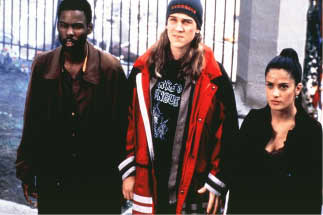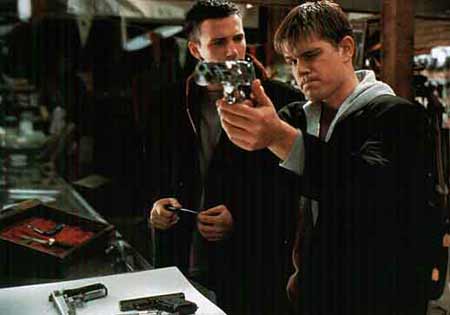
Oh how I do so love this film. It's just so good on so many levels. The main reason for me is the family connections in this film. There are 3 generations living under one roof in this movie and I think it's more than a little sad how this today just isn't the case anymore. I, as some of you know have my father living with me and as far as I'm concerned it will stay that way until he dies. He's 60 now and it not only would be next to impossible for him to live by himself, he just doesn't have anyone else. So he is going to stay with me and I hope to be able to provide him comfort.
Which is why I love this film, when Loretta (played by Cher who won an Oscar for her performance) tells her mother Rose (Olympia Dukakis who also won an Oscar in this film) that she is getting married one of the first things Rose asks Loretta is if they are going to live in the house with the rest of the family. I love that. Apparently that is a very Italian trademark. I wonder in today's ever changing world if it is still that way. Even Nicholas Cage, who I know a lot of people can't stand is quite good for how young he was in this film.
I highly recommend this movie if you haven't had the pleasure yet. The man who wrote this screenplay grew up in New York around Italian families and it shows (he also won an Oscar for his screenplay) in the film. The funny thing is, he's Irish and as he was growing up he says he started looking around the neighborhood and he started noticing these Italian families and they way they treated each other so he started spending as much time with them as he could. And this is the result of that. In closing I'll just tell you that this film is on the lists for a reason and I hope you love it as much as I do.
__________________
We are both the source of the problem and the solution, yet we do not see ourselves in this light...
We are both the source of the problem and the solution, yet we do not see ourselves in this light...
Last edited by Powdered Water; 04-06-08 at 02:40 PM.





















